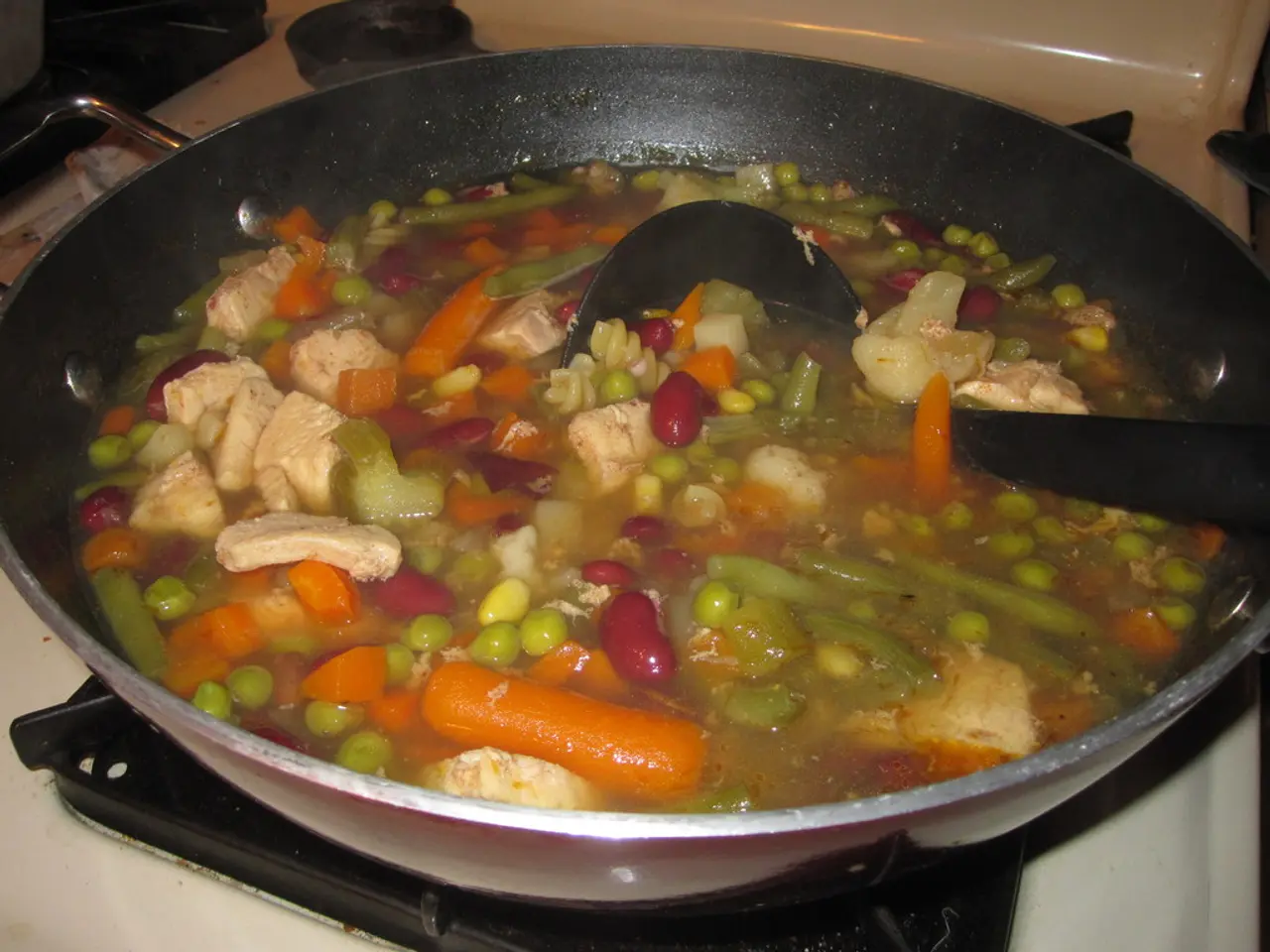Foods that Produce Gas and Strategies to Prevent Flatulence
In the realm of digestive health, gas and bloating are common issues that many people experience. These discomforts can be caused by various factors, including the consumption of certain foods. Here's a guide to some high-FODMAP foods known to contribute to gas and bloating.
FODMAP stands for fermentable oligosaccharides, disaccharides, monosaccharides, and polyols. These are types of carbohydrates that are not easily absorbed in the small intestine and, instead, are fermented by gut bacteria, leading to gas production and bloating.
Carbonated drinks, including sodas, waters, and juices, can contribute to gas and bloating due to the carbonation itself. Swallowed air when drinking can also cause gas.
Onions contain fructans, which are difficult for the small intestine to absorb. When these sugars pass into the large intestine, they ferment, causing gas.
Beer, a carbonated beverage produced by fermenting various grains, can lead to excess gas and bloating in the gut. People sensitive or allergic to gluten may experience additional gas and bloating due to the presence of gluten in beer.
People with lactose intolerance may find dairy products, such as milk, cream, yogurt, and ice cream, to be problematic, as they contain lactose, a type of sugar that can cause gas.
Beans and legumes, like lentils and broccoli, contain high amounts of a complex sugar called raffinose, which the body has difficulty digesting, leading to increased gassiness.
Fruits high in fructans, such as grapefruit and raisins, and fruits high in fructose, such as asparagus and mango, can also cause gas and bloating.
Hard candy, chewing gum, and sugar-free sweets often contain sugar alcohols, which can cause excessive flatulence.
Fatty foods slow digestion, which can cause gas to become trapped in the gut. Garlic may cause gas and bloating in some individuals, and people who are gassy due to garlic consumption may notice some odor.
Common high-FODMAP foods include:
- Legumes high in galacto-oligosaccharides (GOS): almonds, black beans, chickpeas, lentils, lima beans, mung beans, red kidney beans, soy beans, butter beans, borlotti beans, haricot beans. - Vegetables high in fructans: garlic, white bulb leek, onion (red or white), shallot, spring onion (white bulb), okra, savoy cabbage. - Fruits high in fructans: grapefruit, dried figs, raisins, pomegranate seeds. - Fruits high in fructose: asparagus, boysenberry, broad beans, fresh figs, honey, mango, sugar snap peas, sun-dried tomatoes, tamarillo. - Dairy high in lactose: cream, sour cream, cream cheese, ice cream, milk, buttermilk, evaporated milk, ricotta cheese, yogurt. - Vegetables high in polyols mannitol and sorbitol: cauliflower, celery, sweet potato, avocado, blackberry, lychee, peach.
Other high-FODMAP foods include grains with fructans, such as wheat bread, barley, couscous, spelt pasta, and certain beans and legumes, such as baked beans, kidney beans, lentils, and split peas.
Limiting or avoiding these foods is often recommended to manage gas and bloating symptoms related to FODMAPs. If you suspect that certain foods are causing your discomfort, consider keeping a food diary to identify potential triggers and adjust your diet accordingly. Always consult a healthcare professional for personalised advice.
- In the digestive health realm, food and drinks containing FODMAPs (fermentable oligosaccharides, disaccharides, monosaccharides, and polyols) are commonly linked to gas and bloating.
- Carbonated drinks, such as sodas, waters, and juices, can contribute to gas and bloating due to the carbonation itself and swallowed air when drinking.
- Onions, containing fructans, are difficult for the small intestine to absorb, leading to gas production and bloating when these sugars ferment in the large intestine.
- Beer, a carbonated beverage, can lead to excess gas and bloating in the gut, along with discomfort for those sensitive or allergic to gluten.
- Dairy products, like milk, cream, yogurt, and ice cream, can be problematic for those with lactose intolerance due to the lactose they contain, which can cause gas.
- Beans and legumes, such as lentils and broccoli, contain high amounts of raffinose, a complex sugar the body has difficulty digesting, causing increased gassiness.
- Fruits high in fructans, such as grapefruit and raisins, and fruits high in fructose, such as asparagus and mango, can also cause gas and bloating, making them parts of a healthy-cooking lifestyle one might want to adjust.




